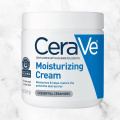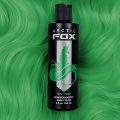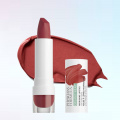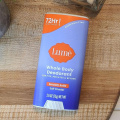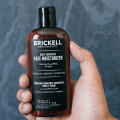Does Accutane Cause Hair Loss: Understanding the Risks in Depth
Does Accutane cause hair loss? We unveil the important facts behind Accutane's effects on hair and how it impacts those undergoing acne treatment.
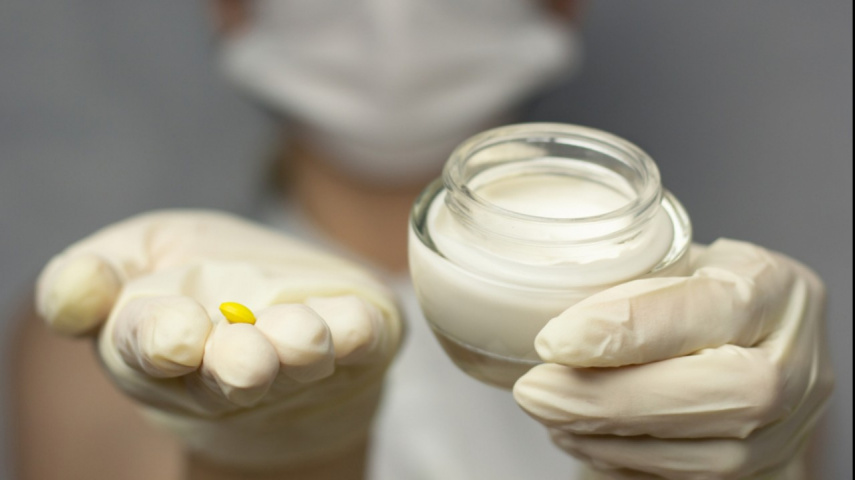
Experiencing the relief of an acne breakout fading away is genuinely unparalleled. Yet, for some, using Accutane brings along an unanticipated concern — hair loss. So, does Accutane cause hair loss? No doubt it has been a pressing query for many, especially when they start observing increased hair shedding. The relationship between Accutane and hair health isn't widely discussed, but it's vital to understand.
The journey to clear skin, especially for those grappling with severe acne, often means exploring different treatments. Accutane has undeniably shown efficacy in battling stubborn acne (1). However, every medication has its pros and cons. While Accutane may pave the way for blemish-free skin, its association with temporary to permanent hair loss has raised eyebrows. The good news is that the condition is usually not permanent for those facing thinning of hair or loss due to Accutane. There are also several measures to ensure your scalp and tresses stay in optimal health during the treatment. Let’s take a closer look.
What Is Accutane?
Accutane, known scientifically as isotretinoin, was formerly marketed by the renowned Swiss healthcare giant Roche. Classified as a retinoid, Accutane is essentially a synthesized form of vitamin A (1). It's prescribed predominantly to treat hormonal acne as an oral medication in capsule form, dosed typically twice a day, spanning 15 to 20 weeks. Although the intricacies of how Accutane works to counteract acne remain somewhat mysterious, its ability to regulate skin cell accumulation and oil production — major contributors to acne — is well acknowledged (1).
What Does the Research Say About Hair Loss Related to Accutane?
Hair loss, marked by a decrease in hair count and density, is a noted side effect of isotretinoin, more commonly recognized by its brand name, Accutane. Research, specifically a certain study, indicated that while this effect was largely temporary, hair thinning may persist even after concluding the treatment (2). It's also worth noting that about 10 percent of those on Accutane experience this temporary hair thinning. Contrasting this, a study in 2018 presented a different perspective, suggesting that isotretinoin doesn't hamper short-term hair growth (2). This study further elaborated that significant disruption in hair growth was observed only when individuals were administered extremely high doses of the drug (2). That’s a lot of contradiction, so let’s try to understand this a bit more.
Does Accutane Cause Hair Loss?
Accutane has been linked with hair thinning or loss as one of its side effects. However, a comforting note is that this is typically a transient occurrence. Research data has indicated that a number of isotretinoin users report hair loss, with variables like the dosage taken playing a role in this outcome (3).
The natural lifecycle of our hair comprises three phases: growth, transition, and rest (4). Each phase is intricate, often stretching across several years. Accutane reportedly disrupts the normal hair cycle, halting the growth phase and prematurely pushing the hair into its concluding life phase, resulting in augmented hair shedding (3).
While some users experience hair thinning and hair loss while on the acne medication, post Accutane hair loss is more a matter of concern.
How Common Is Accutane Hair Loss?
Oral isotretinoin has been a well-established acne treatment. While potential side effects are associated with isotretinoin, hair loss is lesser-known, primarily due to telogen effluvium (5).
A retrospective study was conducted on alopecia patients undergoing isotretinoin therapy. During the research phase, these patients were put up against others on isotretinoin with no signs of hair loss at the same timeframe. From the pool of 6330 patients showing hair loss, it was found that 48 had been prescribed isotretinoin between 2013 and 2018. Of this subset, 19 patients reported hair loss during their isotretinoin treatment or within two years (5).
The data revealed that compared to the control group, those showing hair loss due to isotretinoin were generally older, had been prescribed higher cumulative doses, and had undergone longer treatment durations (5).
This study indicates that aspects like the dosage or the length of treatment might play a pivotal role. This information is important for practitioners guiding patients apprehensive about potential hair loss while contemplating isotretinoin therapy.
Can You Reverse Accutane Hair Loss?
For those who experience hair loss as a result of isotretinoin treatment, there is a silver lining. Once the treatment is concluded, it is common for the hair regrowth journey to begin (6).
Moreover, proactive steps can be taken during the treatment phase itself along with maintaining a restricted lifestyle and healthy diet to help reverse Accutane-related hair loss.
It's important for patients to maintain regular and transparent communication with their dermatologist or healthcare professional. This ensures that the isotretinoin dosage is personalized to one's unique physiology. If hair thinning is detected, it's a clear indication that a dosage adjustment might be in order.
How to Prevent Accutane Hair Loss?
For those on isotretinoin, there are proactive measures to potentially prevent or at least minimize hair loss and thinning of hair shafts:
1. Boost B Vitamin Intake: A 2011 study linked isotretinoin treatment with B vitamin deficiencies, especially folate (7). Addressing this deficit by consulting a doctor about accutane hair loss supplements (supplements to reduce vitamin B deficiency) or consuming folate-rich foods like avocados, broccoli, and bananas can be beneficial (8).
2. Stress Management: Stress, a known hair loss aggravator, might exacerbate the symptoms when combined with isotretinoin (9). Integrating stress-relief techniques, like meditation or yoga, can be advantageous (10).
3. Moisturize: Isotretinoin can make hair and skin excessively dry, leading to fragile hair (6). Consultation with a dermatologist for suitable hair care products can be helpful.
4. Limit Chemical Exposure: While on isotretinoin, it's advisable to refrain from hair treatments like bleaching or dyeing which can potentially weaken hair.
5. Mindful Hair Handling: Wet hair is delicate. Instead of brushing, gently untangle with your fingers.
6. Sun Protection: Shielding the scalp from direct sunlight can prevent further damage (11). Hats or scarves can be practical choices.
7. Dosage Adjustment: In case hair loss becomes a concern, discussing dosage modifications with a doctor ensures the acne treatment remains effective without the accompanying hair loss.
Conclusion
So, does Accutane cause hair loss? Well, here we are: Accutane, while powerful in treatment for acne, does come with its set of side effects, hair loss being one of the less common. While this can be unsettling, the silver lining is that for most users, the hair loss is temporary and recovers post-treatment. Understanding the intricacies of this medication helps users get a better hold of its uses. It's always recommended to communicate with healthcare providers to ensure the treatment path you are following is good to go.
ALSO READ: Benefits of Argan Oil for Hair: The Magic of Liquid Gold





 JOIN OUR WHATSAPP CHANNEL
JOIN OUR WHATSAPP CHANNEL







































